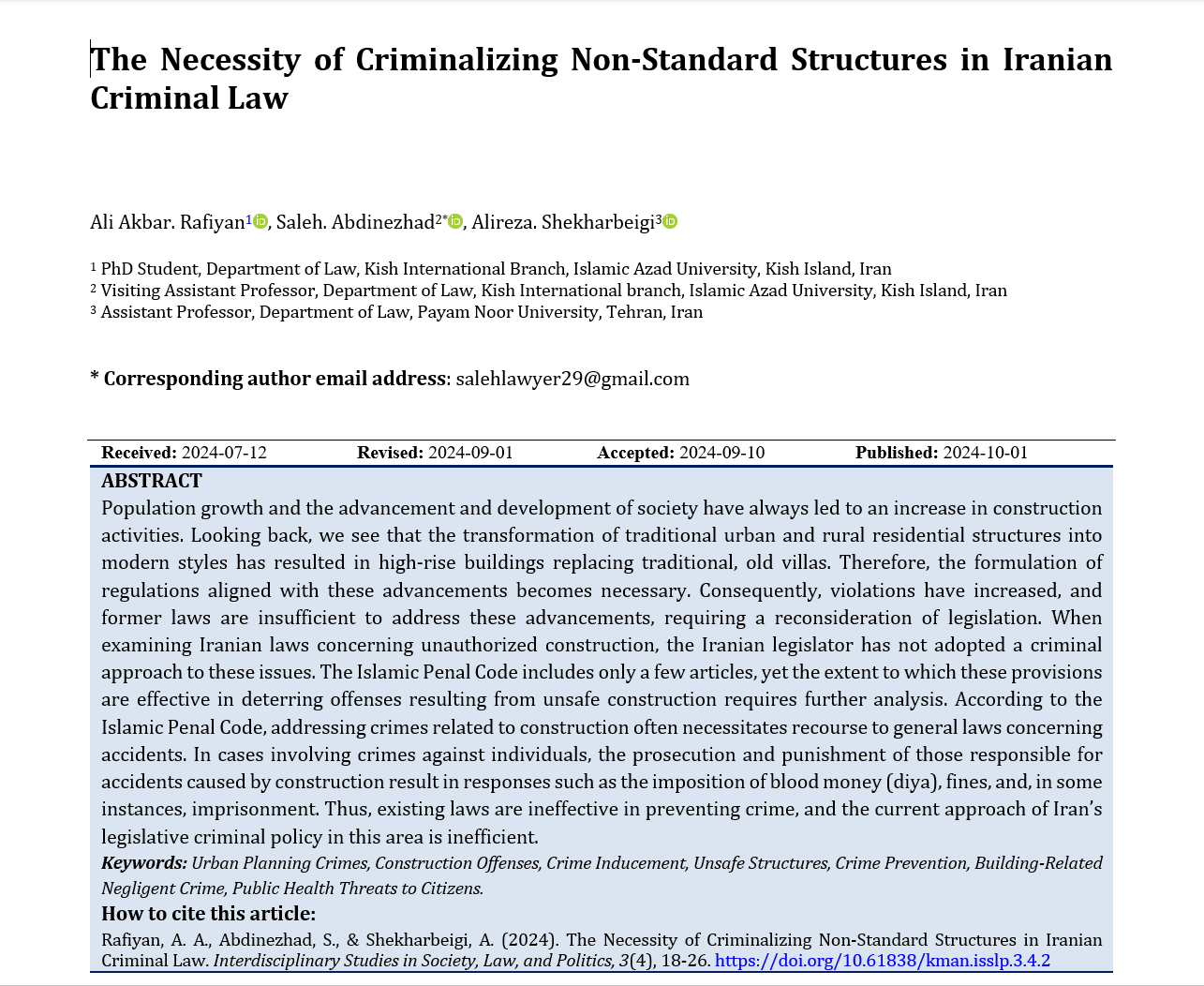The Necessity of Criminalizing Non-Standard Structures in Iranian Criminal Law
Keywords:
urban planning crimes, construction crimes, criminalization, safe structures, buildings from crimes, public health risk, intentional night crimes related to buildingsAbstract
Population growth and the advancement and development of society have always led to an increase in construction activities. Looking back, we see that the transformation of traditional urban and rural residential structures into modern styles has resulted in high-rise buildings replacing traditional, old villas. Therefore, the formulation of regulations aligned with these advancements becomes necessary. Consequently, violations have increased, and former laws are insufficient to address these advancements, requiring a reconsideration of legislation. When examining Iranian laws concerning unauthorized construction, the Iranian legislator has not adopted a criminal approach to these issues. The Islamic Penal Code includes only a few articles, yet the extent to which these provisions are effective in deterring offenses resulting from unsafe construction requires further analysis. According to the Islamic Penal Code, addressing crimes related to construction often necessitates recourse to general laws concerning accidents. In cases involving crimes against individuals, the prosecution and punishment of those responsible for accidents caused by construction result in responses such as the imposition of blood money (diya), fines, and, in some instances, imprisonment. Thus, existing laws are ineffective in preventing crime, and the current approach of Iran’s legislative criminal policy in this area is inefficient.
Downloads






